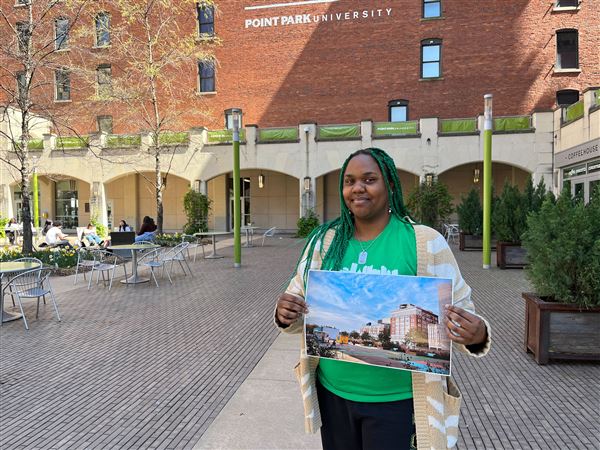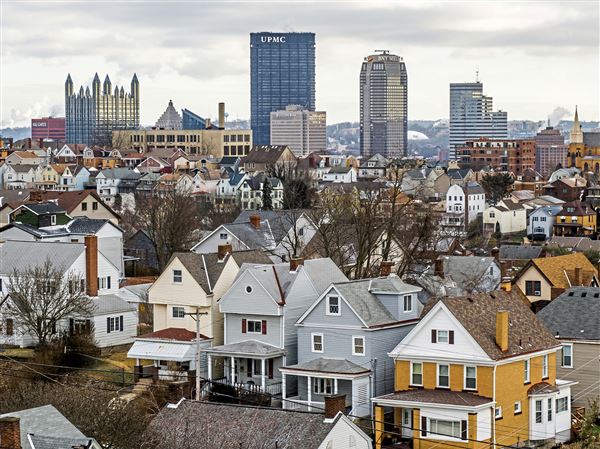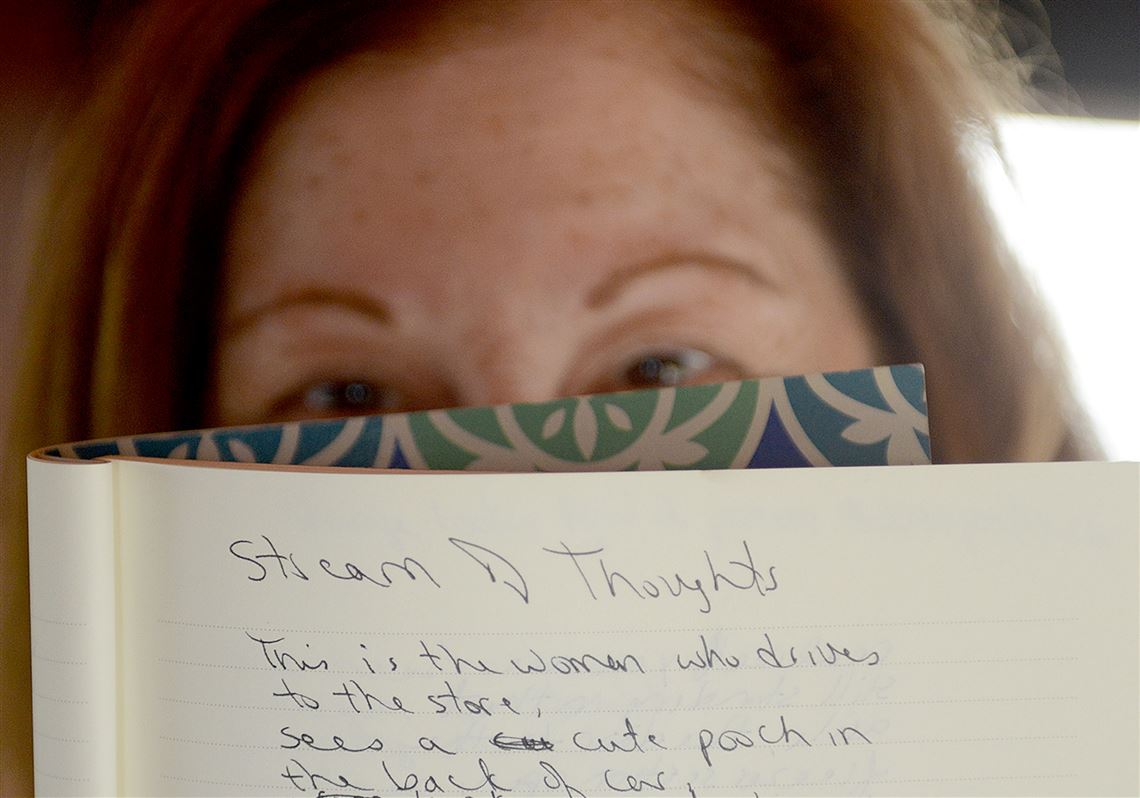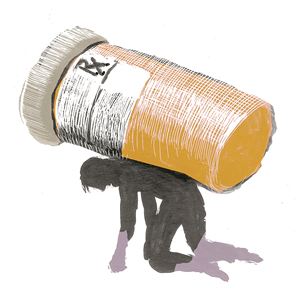As rain dampens another gray April morning, Valerie Bacharach paces inside a Swissvale building while leading a poetry writing workshop for 13 women. Her classroom is a large, brightly lit dining room with five tables, yellowish green walls and white ceiling fans.
Decades ago, Roman Catholic nuns attired in formal habits prayed and broke bread here in the former St. Anselm’s Convent on Church Street. Today, Mrs. Bacharach works with women dressed in denim, purple or turquoise sweatshirts and tennis shoes or boots. Ranging in age from their 20s to 40s, they chew gum or fidget with their pens.
Instead of the rosary, these women say the serenity prayer because they are recovering from drug or alcohol addiction. As residents of a program called POWER — Pennsylvania Organization for Women in Early Recovery — some of them live here for up to six months. The weekly writing workshop “just gives them some space,” said Mrs. Bacharach, a slender, intense woman who admits to being a nudge.
For slightly more than a year, she has taught each week at POWER house, often reading aloud poems by Maya Angelou, Lucille Clifton and Mary Oliver because “they write poems in understandable language.”
Six years ago this July, she lost her 26-year-old son, Nathan, to drug addiction. Injured in a soccer game at age 18, he broke his tibia and had a steel rod inserted in his leg. The drugs he took for pain, she believes, sowed the seeds of his addiction.
Counseling helped her cope with his death, but three years ago Mrs. Bacharach began to study poetry at Carlow University’s Madwomen in the Attic program and met “a whole community of amazing women. Poetry helped me deal with guilt and anger and sadness. I really liked the spareness of poetry,” said the Point Breeze woman, who holds a master’s degree in education from Ohio State University and taught children with learning disabilities for six years in Ohio public schools.
Jan Beatty who directs Carlow University’s Madwomen in the Attic program, said, “What’s particularly interesting with Valerie is she’s coming out of some tremendous grief, and she has chosen to give that back and work with people in need. She’s a really strong person. Poetry is a lifeblood sort of thing that makes people feel alive.’’
Despite her academic training, Mrs. Bacharach was nervous about leading a writing workshop and soon learned that her students were in a better humor if they had an outdoor smoke break before sitting down to write. When they don’t, the one-hour session can seem longer than “The Iliad” and “The Odyssey” combined.
“I didn’t know if it would be too much for me,” Mrs. Bacharach said, recalling that during the first class, one woman said, “I hate poetry” in a matter-of-fact tone, a comment that made the room erupt in laughter.
“Sometimes a woman is not in the mood to write, and that’s fine,” Mrs. Bacharach said, but she wants them to try.
“You’re not allowed to say, ‘I can’t do this’ or ‘My words are stupid,’ ” she tells her students.
Some of these struggling writers have served time in jail or survived physical abuse or sexual assault.
Here’s an excerpt from “The Wasted Time” by Misty:
I just live for the day when I’ll get a new start
and the dreams I still hold deep in my heart.
I hope I can make it, I at least have to try,
because I’m heading toward death and I don’t want to die.
Each week, Mrs. Bacharach returns her students’ poems on freshly typed paper. Last week, she read “homage to my hips,” a defiant, funny poem by Lucille Clifton that’s about choice and independence.
“She could have easily said, ‘This woman.’ Why do you think she picked hips?” Mrs. Bacharach asked.
“It’s sexual,” responds one class member. “It’s more powerful that way,” says another.
Mrs. Bacharach reads her students’ work aloud. One woman’s poem describes the boundless joy she derives from her baby girl’s various ways of laughing. Another woman’s work conveys the fear that gripped her when she was shackled to heroin.
If she is unable to visit POWER house in person, Mrs. Bacharach emails poetry and assignments to her students. She continues to read, write and find solace in poetry but her students are a source of inspiration, too.
“I have learned how truly strong these women are. I truthfully feel honored to work with these women. And I like them,” she said.
Poems by POWER graduates have been published in a booklet called “Stand Tall and Face the Sun.” It will be distributed Thursday evening during “POWER Promises: A Night of Hope,” an annual gala held at Rodef Shalom, 4905 Fifth Ave., Shadyside. The evening celebrates the recovery of three POWER program graduates. These alumni represent the 23 million Americans living in recovery. For more information, visit www.power-recovery.com or call 412-243-8755.
Marylynne Pitz: 412-263-1648 or mpitz@post-gazette.com
First Published: April 14, 2015, 4:00 a.m.


















